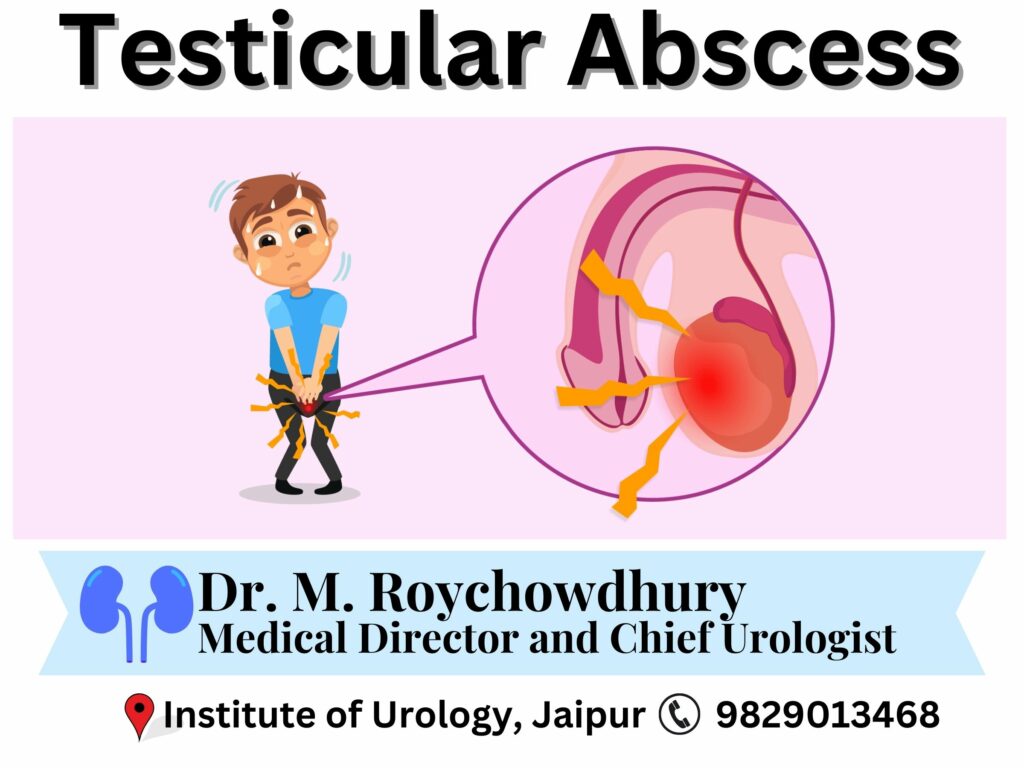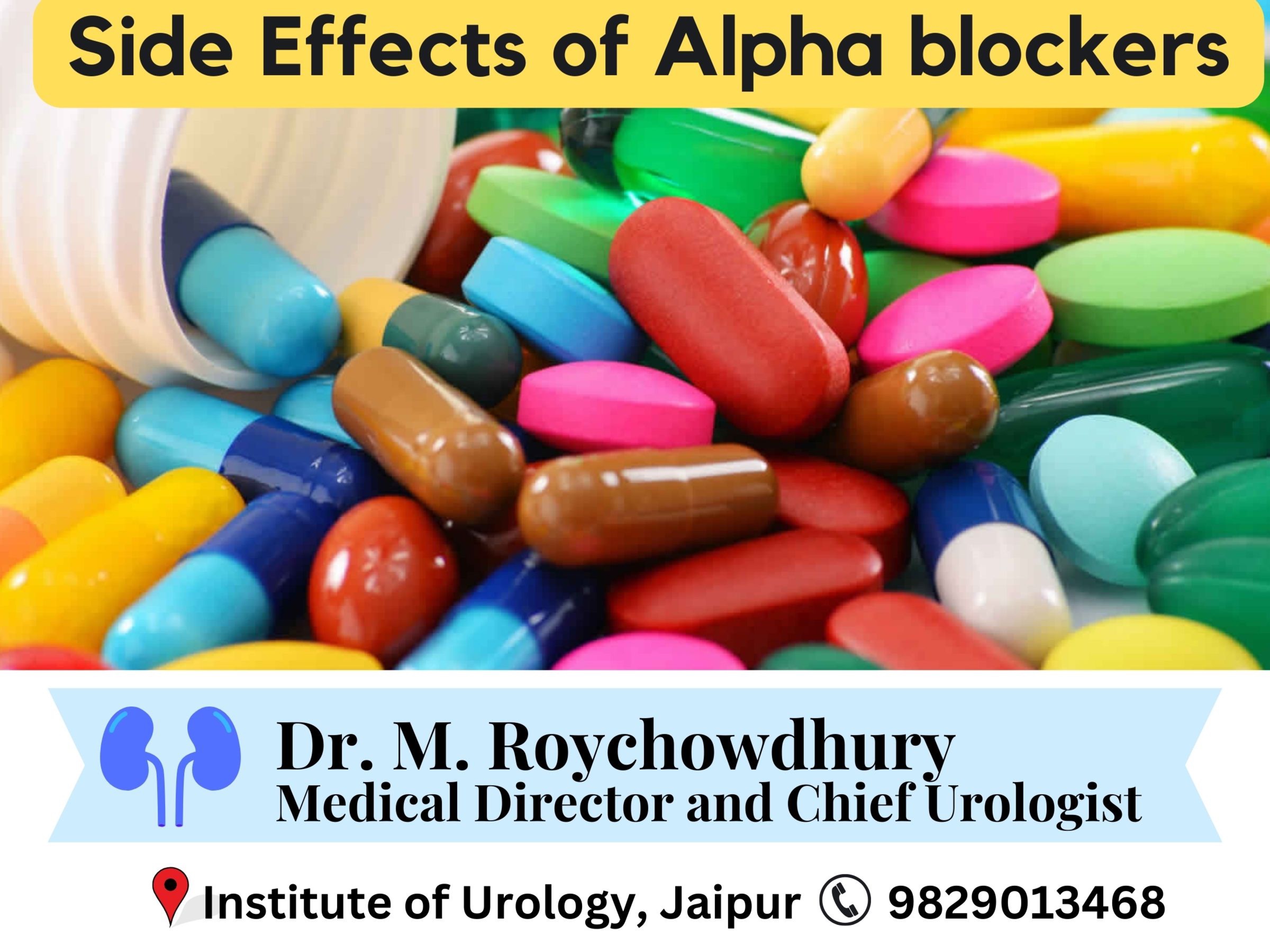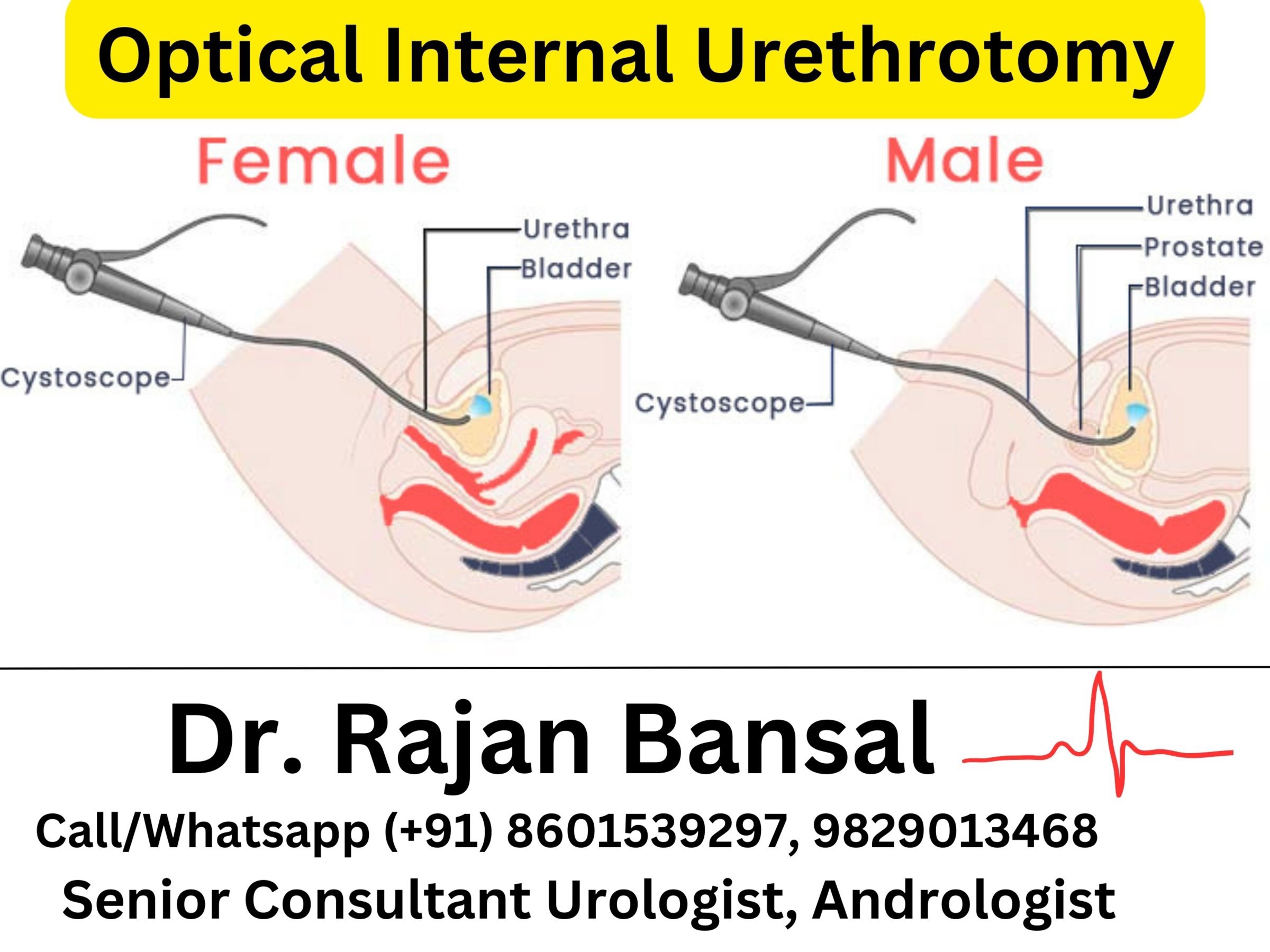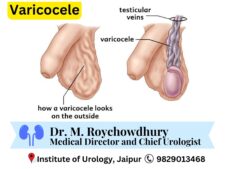Testicular Abscess: Causes, Symptoms, Diagnosis, and Treatment: Testicular abscess, though rare, is a critical medical condition that demands immediate attention. It arises from an infection within the testicle, leading to the formation of a pus-filled pocket. In this comprehensive guide, we will explore the causes, symptoms, diagnostic procedures, and treatment options for testicular abscess, providing you with a thorough understanding of this condition.

What is Testicular Abscess
A testicular abscess is a localized collection of pus within one of the testicles. The testicles are crucial components of the male reproductive system, responsible for producing sperm and hormones. When an infection takes root within the testicle, it can result in the development of an abscess.
Causes of Testicular Abscess
Bacterial Infection:
The most common cause of a testicular abscess is a bacterial infection. Bacteria can enter the testicle through various routes, such as through the bloodstream, urinary tract, or from surrounding tissues.
Epididymitis:
Inflammation of the epididymis, a coiled tube located near the testicle, can lead to the development of a testicular abscess if left untreated. Epididymitis can be caused by a bacterial infection or other factors like trauma.
Sexually Transmitted Infections (STIs):
Certain sexually transmitted infections (STIs) can lead to infections in the testicles. This can occur when bacteria from an STI, such as gonorrhea or chlamydia, travel through the urinary tract or bloodstream to reach the testicles.
Prostatitis:
In some cases, prostatitis, which is an inflammation of the prostate gland, can lead to the spread of infection to the testicles, resulting in the formation of an abscess.
Complications from Surgical Procedures:
Although rare, surgical procedures involving the genitourinary tract or nearby structures can potentially introduce bacteria into the testicles, leading to an abscess.
Immune System Compromises:
Individuals with weakened immune systems, such as those with HIV or undergoing immunosuppressive therapy, may be more susceptible to developing a testicular abscess if they acquire a bacterial infection.
Trauma:
Severe trauma or injury to the testicles can lead to the development of hydrocele (blood collection/hematoma) which gets secondarily infected and then develop into an abscess. Trauma can occur due to accidents, sports injuries, or other forms of physical trauma.
Urinary Tract Infections (UTIs):
In rare cases, a urinary tract infection can progress and spread to the testicles, leading to the formation of an abscess.
Complications from Other Medical Conditions:
Certain medical conditions, such as diabetes or sickle cell disease, can weaken the immune system or affect blood flow, increasing the risk of developing infections, including testicular abscesses.
Tuberculosis – Tuberculosis (aka TB) from other parts of the body may spread hematogenously (through blood) and may cause testicular infection which may turn into an abscess.
Symptoms of Testicular Abscess
Identifying the symptoms of a testicular abscess is vital for timely diagnosis and treatment. Common indicators include:
- Severe Testicular Pain
Patients typically experience intense, localized pain in the affected testicle. - Swelling and Redness
The affected testicle may become swollen, and the scrotal area may appear red and inflamed. - Fever and Chills
Systemic symptoms like fever and chills often accompany a testicular abscess. - Painful Urination
Some individuals may experience pain or discomfort while urinating. - General Malaise
A sense of unease, weakness, or fatigue may be present.
Diagnosis of Testicular Abscess
- Physical Examination
A healthcare provider will conduct a thorough physical examination, including a careful examination of the testicles and scrotum. - Ultrasound
This imaging technique helps visualize the abscess and its size. This is one of the best imaging modality as it is non invasive and can help through guiding in treatment options such as aspiration and detecting complications. - Blood Tests
Elevated white blood cell count and markers of inflammation can indicate an ongoing infection. - Aspiration of Abscess
In some cases, a sample of pus may be drawn from the abscess for laboratory analysis.
Treatment Options for Testicular Abscess
- Antibiotic Therapy
Broad-spectrum antibiotics are typically prescribed to combat the bacterial infection. Multiple small abscess may be treated with antibiotic therapy. - Abscess Drainage
If the abscess is large or does not respond to antibiotics, drainage may be necessary. This can be done through a minimally invasive procedure or surgery in the hands of an expert urologist. - Orchidectomy
If the abscess is still not resolving even after prolonged antibiotic course or not responding to any oral or injectable medications, then in some cases orchidectomy (surgical removal of the affected testicle) may be needed.
Complications and Prognosis
With prompt diagnosis and proper treatment, the outlook for individuals with a testicular abscess is generally favorable. However, if left untreated, it can lead to more severe complications, such as large abscess and damage to testes where orchidectomy may be needed. Therefore, it is extremely important to never ignore these symptoms and contact a good urologist as soon as there is discomfort.
Best Hospital for Urology and Testicular problems in Males – Institute of Urology, Jaipur
Testicular abscess is a rare but potentially serious condition that requires immediate medical attention. Understanding the causes, recognizing the symptoms, and seeking prompt treatment can significantly improve outcomes. If you suspect you may have a testicular abscess, it is crucial to consult a urologist promptly.
At Institute of Urology, Jaipur patient confidentiality is a priority. We offer Total Urology Care Under One Roof, which means we have all the facilities like blood tests, sonography, x-ray, pharmacy etc available in the hospital premises itself and patient and their relatives do not have to make unnecessary trips. Our team of Senior Urologists include Dr. M. Roychowdhury (Chief Urologist & Director) and Dr. Rajan Bansal (Senior Urologist & Andrologist) are here to provide the best possible treatment plans suited to your needs. Our team of highly skilled and well trained staff ensures a smooth stay at the hospital if required.
Now, we have also introduced the facility of online consultation so that you can discuss your problems with our doctors from the comfort of your home. Our doctors can be reached Monday to Saturday during working hours on
Dr. M. Roychowdhury – 9929513468
Dr. Rajan Bansal – 8601539297







